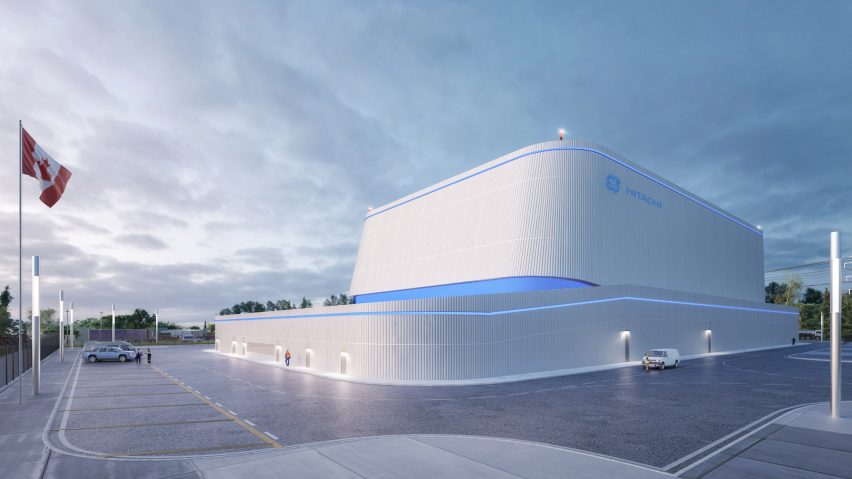Architecture studio Instance BV is collaborating with power company GE Hitachi to design a series of small nuclear power plants to be built across North America, Europe and Asia.
Instance BV is providing "architectural input" for GE Hitachi's BWRX-300 small modular reactors (SMRs), which are scaled-down versions of traditional nuclear power plants.
SMRs could help achieve decarbonisation
The small power plants are being developed by GE Hitachi, which is a collaboration between American corporation General Electric and Japanese company Hitachi, to offer a cost-competitive way to create electricity using nuclear reactors.
According to GE Hitachi, Instance BV has been advising on configurations and layouts for potential sites of these plants and visualising them in high-definition renders.
The plants will be fabricated from modular components, to reduce construction time, with fewer construction materials.
SMRs also allow for greater scalability, flexibility and enhanced safety compared to large-scale nuclear plants, due to their smaller size.
Plants will use boiling water reactors
When built, GE Hitachi's BWRX-300 SMRs will utilise the company's boiling water reactor (BWR) technology.
This involves using a nuclear fission reactor to heat water and produce steam, which is then passed through a turbine to produce electricity. The steam is later condensed back to water and reused in the heating process.
The nuclear energy company said it aims to deploy the SMRs on sites in North America, Europe and Asia as early as 2028.
The aim of the rollout is to help countries meet their decarbonisation goals, in tandem with the use of renewable energy sources.
Nuclear power being explored internationally
The news of the rollout follows General Fusion recently revealing its prototype power plant that it is creating to prove the viability of its nuclear fusion technology as a carbon-free energy source.
Its layout has been designed by Amanda Levete's firm AL_A and is expected to be the world's first power plant of its kind upon completion in 2025.
The fusion technology in its reactor will be used to combine atoms to generate heat, unliked traditional nuclear power stations in which atoms are split in two.
Another groundbreaking proposal for a carbon-free energy source that was recently in the spotlight is the world's first solar power station in space, which China is developing to provide "inexhaustible clean energy".
The visual is courtesy of GE Hitachi Nuclear Energy.

